In February 2024, a Chevy Bolt EUV lease is still available nationwide on the 2023 Chevy Bolt EUV. No other discounts or incentives are available on the discontinued all-electric subcompact crossover.
Chevrolet Bolt EUV Incentives
The Chevy Bolt EUV lease offer in February 2024 is as follows:
- 2023 Bolt EUV LT
- $319 per month for 36 months
- Ultra low-mileage lease with 10,000 miles per year
- $5,909 due at signing for current lessees of a 2019 model year or newer vehicle (after all offers)
- $0 security deposit
- Available nationwide
The above Chevy Bolt EUV lease offer is valid through March 4th, 2024.
Chevrolet Bolt EUV Pricing
For reference, here are the 2023 Chevy Bolt EUV trim levels with their corresponding starting MSRPs, $995 destination freight charge included:
- LT – $28,795
- Premier – $33,295
About Chevrolet Bolt EUV
The 2023 Chevy Bolt EUV received notable changes over the inaugural 2022 Chevy Bolt EUV, namely a new Redline Edition and limited expansion of Super Cruise driving coverage.
In November 2022, the Chevy Bolt EUV received top marks from the National Highway Traffic Safety Administration (NHTSA), specifically a five-star Overall Safety Rating, the highest score awarded by the agency.
However, in March 2023, the Chevy Bolt EV and Chevy Bolt EUV ranked significantly below the segment average in the J.D. Power 2023 U.S. EV Experience Ownership Study. Additionally, Chevy took last place in the J.D. Power 2023 U.S. Electric Vehicle Experience Home Charging Study, which measures customer satisfaction with permanently mounted Level 2 home electric vehicle charging stations.
Value-wise, though, the Bolt EUV qualifies for the full EV tax credit of up to $7,500. Notably, the 2023 Bolt EUV received a January 2023 price increase of $600.
Furthermore, in December 2022, Kelley Blue Book voted the 2023 Bolt EUV as the best new EV priced under $35,000.
In May 2023, Kelley Blue Book reported that the 2023 Chevy Bolt EV and Bolt EUV are the least expensive EVs to own over the span of five years in their respective category.
Chevy Bolt EV and Bolt EUV production is officially over. Consequently, the online configurator tool is no longer live for the discontinued 2023 Bolt EUV, and Chevy now directs buyers to search inventory for any remaining available models.
The Chevy Bolt EV and Bolt EUV served as GM’s entry-level all-electric vehicles, offering zero local emissions and surprising practicality, all at an affordable price point. As a result, GM CEO Mary Barra confirmed during a Q2 2023 earnings report presentation that a next-generation Chevy Bolt is on the way after all. The automaker plans on “updating the vehicle with Ultium and Ultifi technologies,” Barra said during the earnings call, though the next-gen Chevy Bolt won’t be a clean-sheet redesign.
It will, however, incorporate advance technology, using, for example, LFP battery cells, or lithium iron phosphate, instead of the nickel-cobalt-manganese-aluminum (NCMA) chemistry currently utilized by GM’s Ultium battery cells. The new LFP batteries will help the automaker save billions of dollars in capital and engineering expenses.
In an update, Barra recently confirmed that the next-gen Chevy Bolt EV will arrive in 2025. She said that positive customer feedback about the Chevy Bolt EV “has been really great this year,” noting that it was popular demand that “informed the decision that we’ll have that back again in ’25,” according to Automotive News.
During a presentation delivered during GM’s Q3 2023 earnings presentation, she also noted that the next-gen Chevy Bolt EV will be based on the current Bolt EUV, adding, “by leveraging the best attributes of today’s Bolt EUV, as well as Ultium, our latest software, and NACS [North American Charging Standard], we will deliver an even better driving, charging, and ownership experience with the vehicle we know customers love.”
The next-gen Chevy Bolt could end up being built at the GM Fairfax plant in Kansas following a round of fresh investments.
Disclaimer
- Must take delivery by March 4th, 2024.
- See dealer for details.
- Incentive for the United States of America, unless otherwise specified.
- Some customers may not qualify for this Chevy Bolt EUV lease offer.
- Offers not available with special finance, lease, and some other offers.
- All offers are nationally available, unless noted otherwise.
- Additional discounts may be available in certain markets.
We strive to provide accurate and up-to-date information about the vehicles and their incentives in question, but errors and misprints can happen. In addition, the manufacturer can change incentive information at any time and without notice. Always consult with your dealer regarding color availability information before making purchase decisions. GM Authority is not responsible for any omissions, misprints, or any other errors.
Bolt EUV News
GM EV Grunting Noise With Adaptive Cruise Control Or One-Pedal Drive Is Normal
There's no need to try to get it serviced.
Read More »Led By Chevy Equinox EV, GM EV Sales Up 192 Percent During Q3 2024
Chevy's newest models led the way in all-electric deliveries.
Read More »
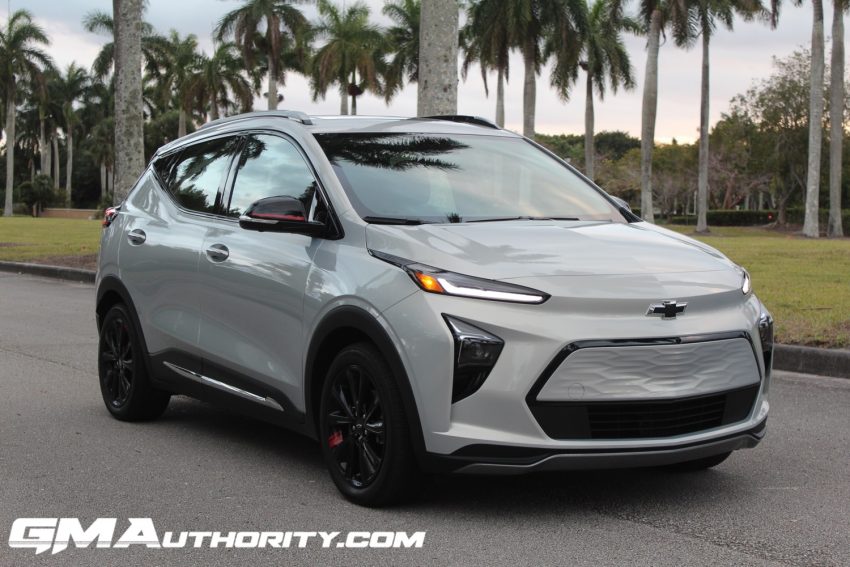
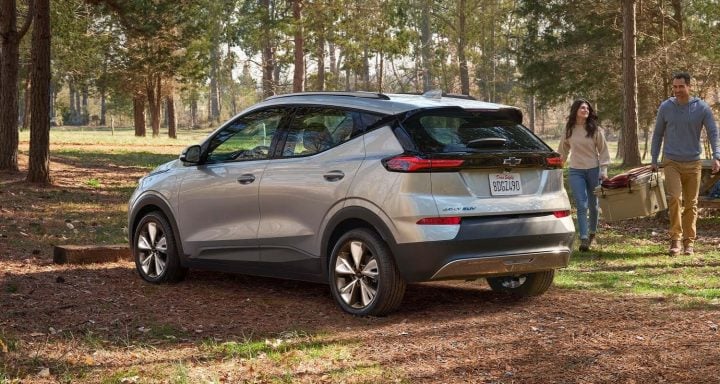
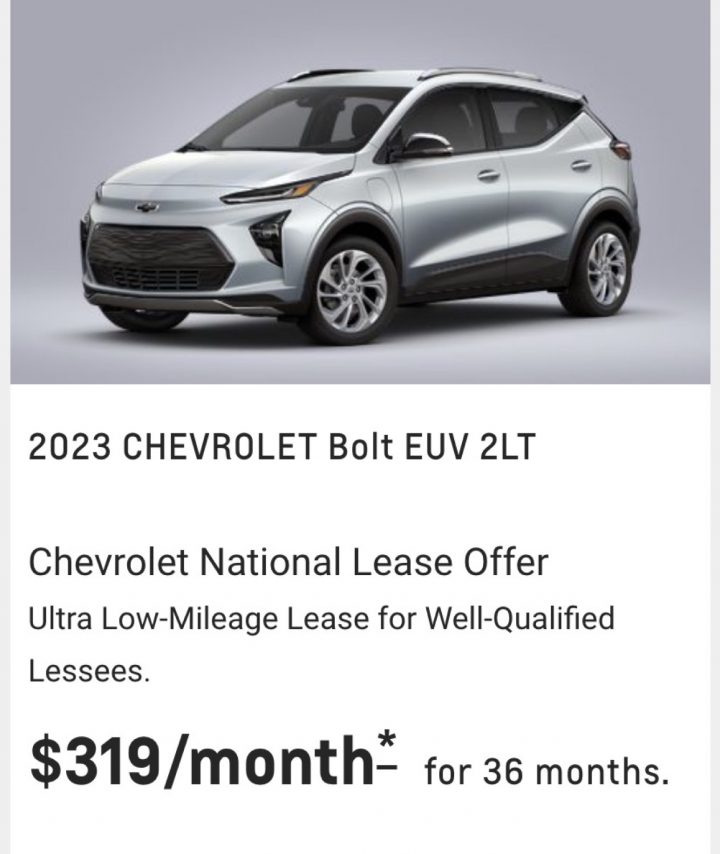
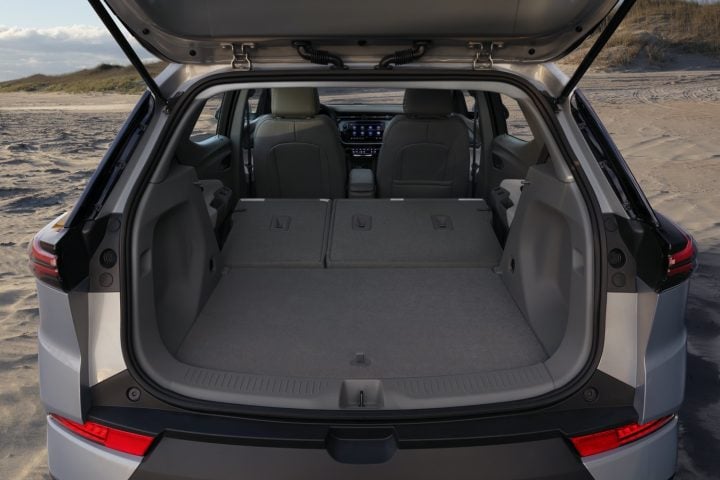

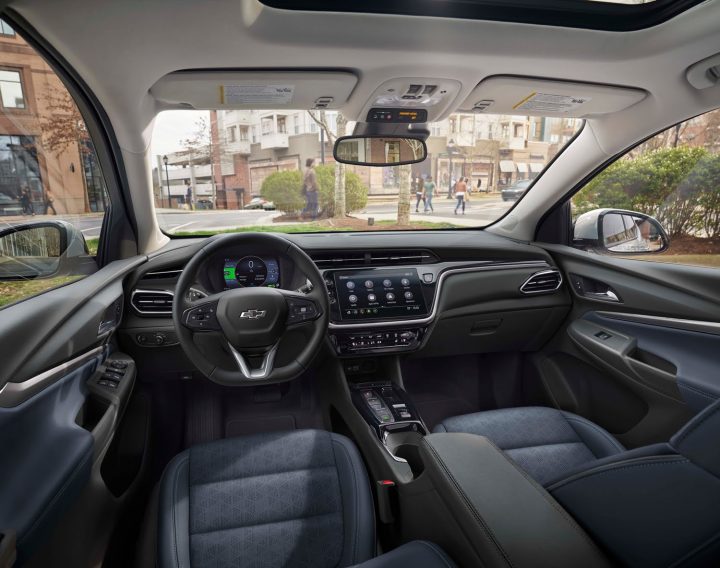
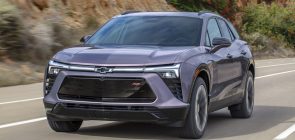
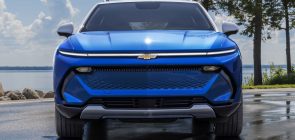



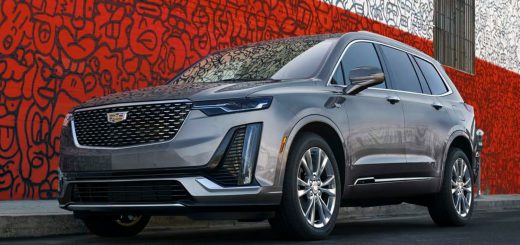
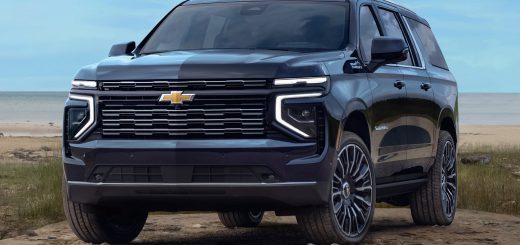
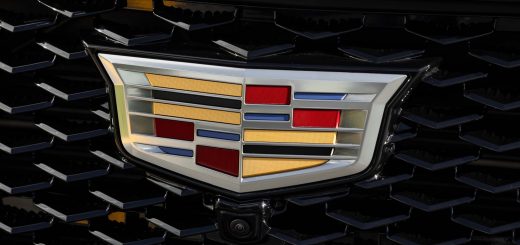
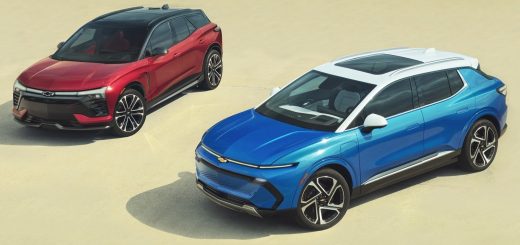





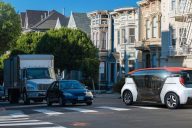
Comment
Love my 2023 Bolt EUV. However, I am confused about the lack of consistency of the battery charge readings when the charge is between 110 and 200 Kwh. Some days the charge drops 1Kwh every 2 miles driven and at other times it drops 4Kwh every 2 miles driven. I know the electrical usage is determined by the weather, wind, the road condition, and accessory usage, but I am taking these variables into consideration and they are essentially the same. The most worry some drop is when I am on the interstate driving a constant 65 – 70 mph. What is so concerning is my inability to determine recharging stops when on the interstate highways because they have so few charging stations on most interstates. What am I missing here? the only electric car owners I know to ask about this are Tesla owners and their cars signal when and where to charge nest.